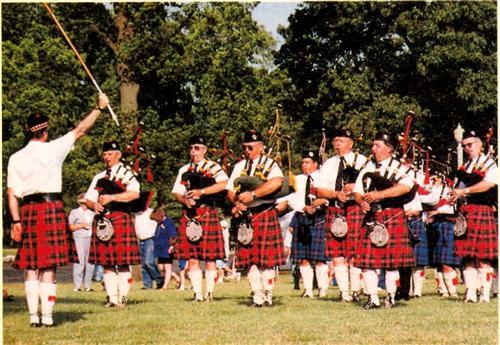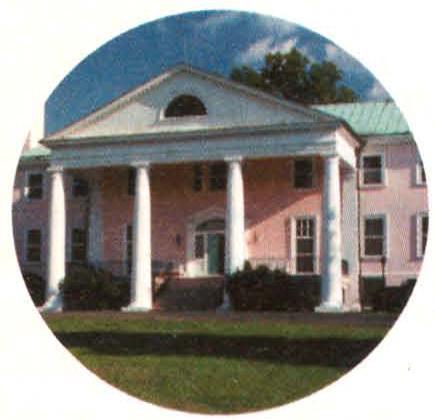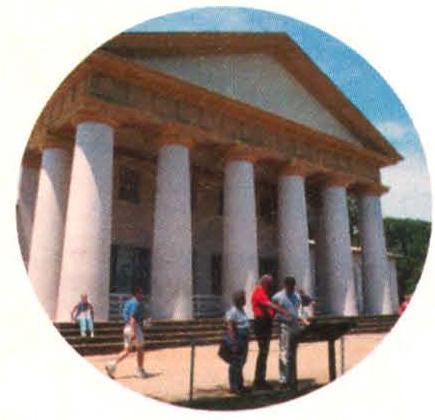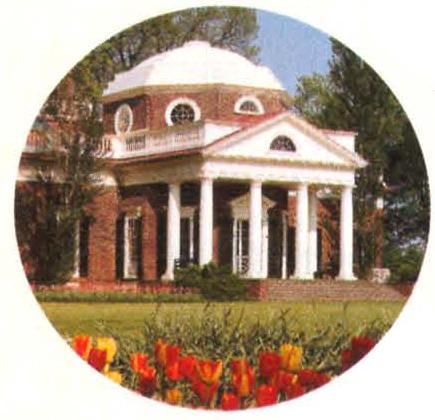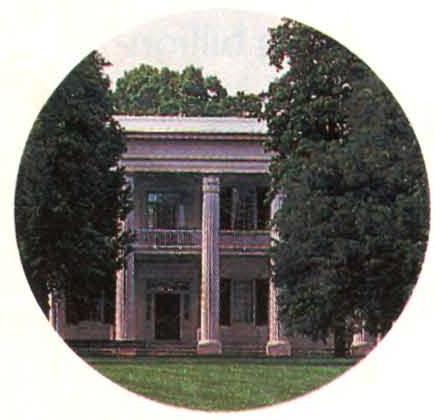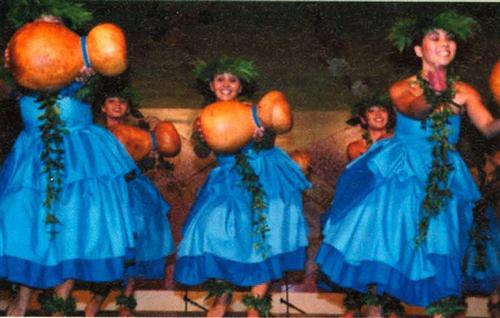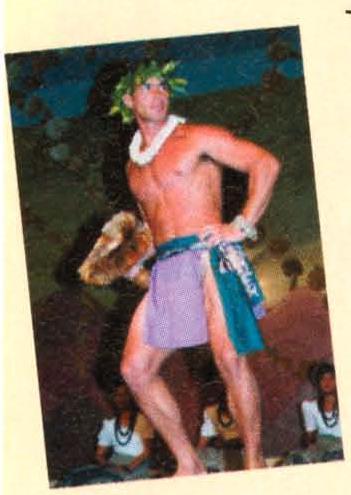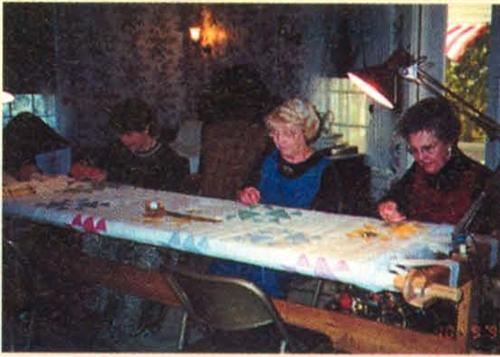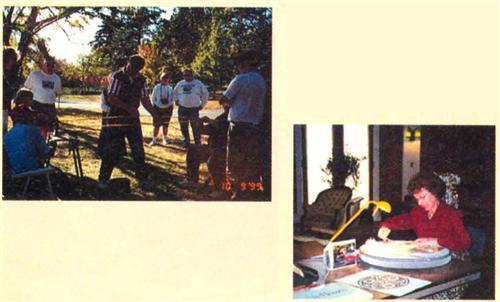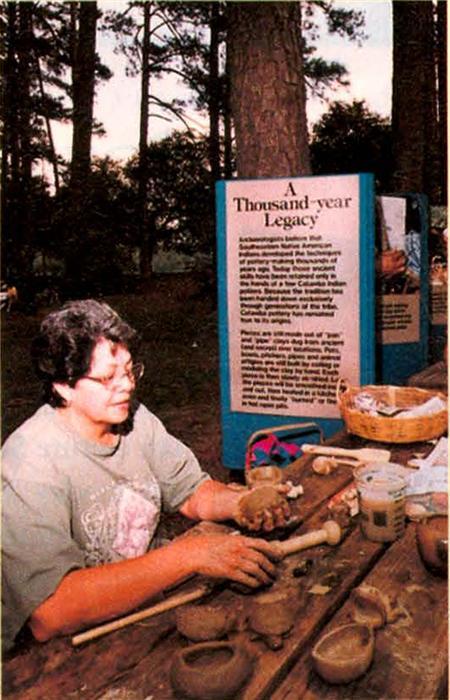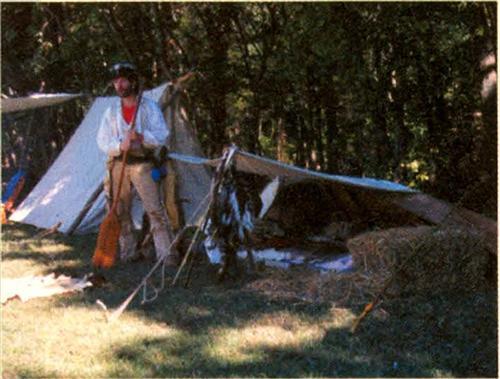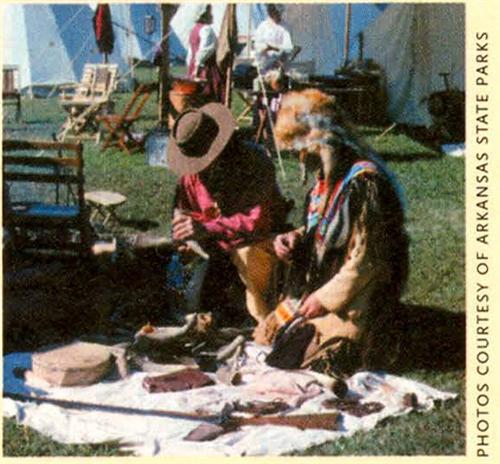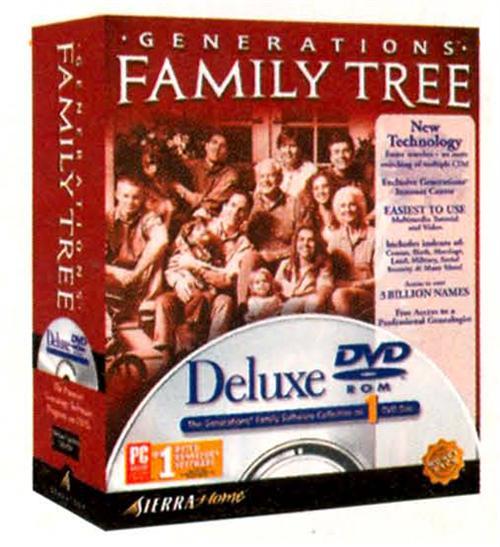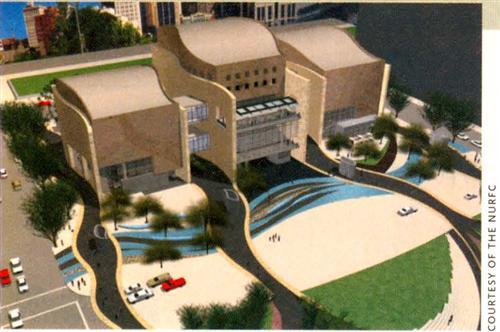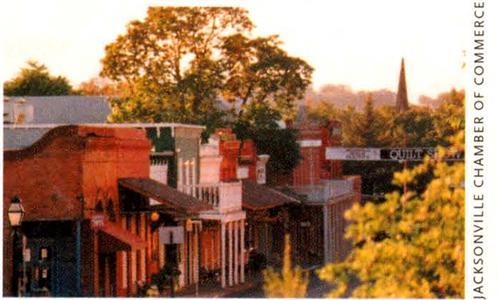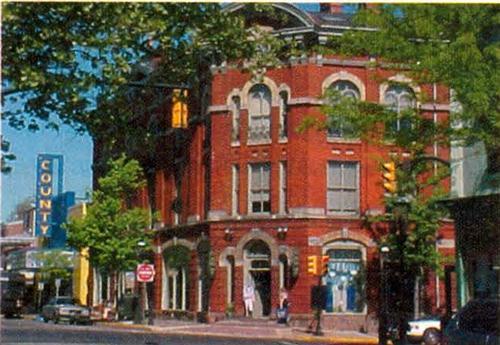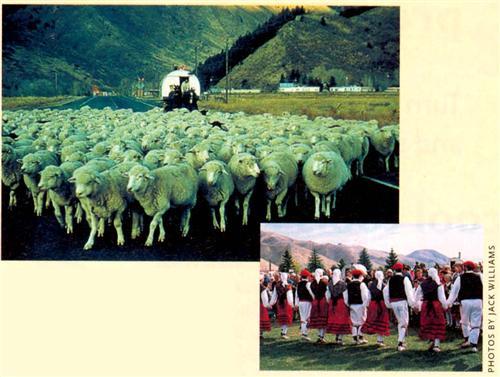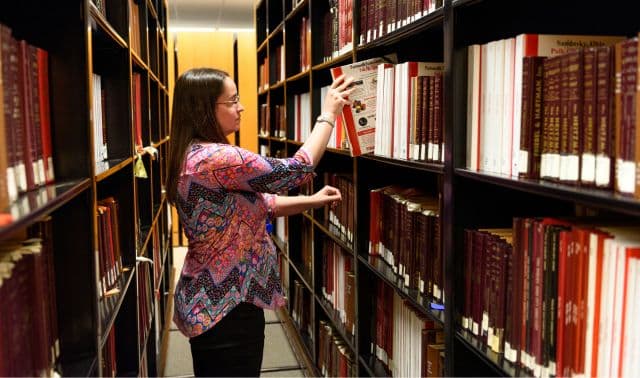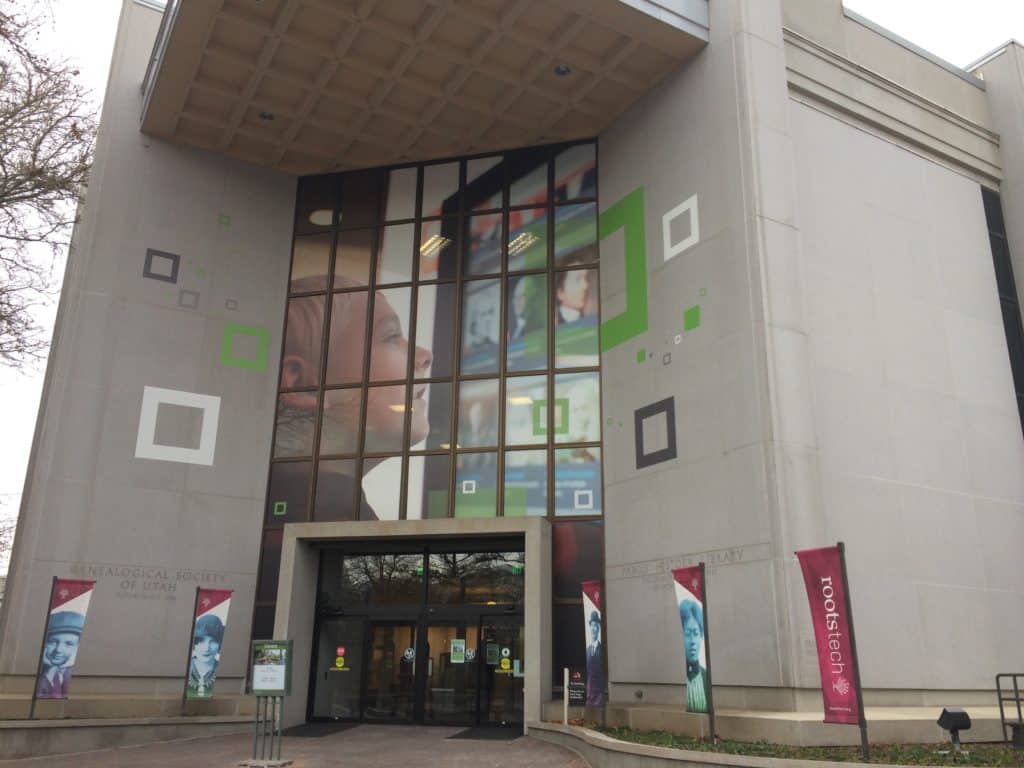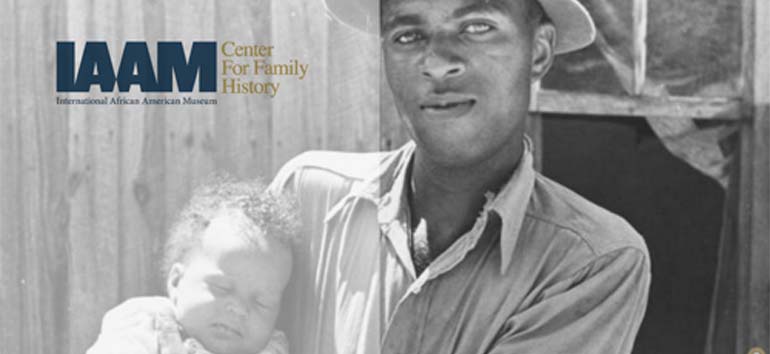ROCHESTER, INDIANA
HISTORIC NATIVE AMERICA
Experience how Native Americans lived, prepared food, hunted, celebrated and traded goods before 1840. Visit encampments that highlight the French and Indian War, Revolutionary War, War of 1812 and western fur trade at the Trail of Courage Living History Festival in Rochester held Sept. 15-16. Observe traditional American Indian beadwork, music, dance and clothing. The festival pays tribute to those Native American families who had ancestors on the 1838 Trail of Death and to those pioneer families whose ancestors arrived before 1840. This year the festival will honor the descendants of Potawatomi Indian Chief Menominee. See <www.icss.net/˜fchs> or call (219) 223-4436. (For more on Native American roots, see page 34.)
MCPHERSON, KANSAS
A TARTAN GOOD TIME
Bagpipes, Highland dance routines, sheep dogs and traditional foods set the scene for the annual Scottish Festival and Highland Games held Sept. 22-23. Join the town of McPherson in celebrating its Scottish heritage. Traditional Scottish dance songs and Celtic vocal groups will add to the flavor of the festival. If you’ve got a bit of Braveheart in you, jump into one of the strenuous Scottish athletic competitions. Call (800) 324-8022 or see <www.mcphersonks.org>.
Ancestry.comSM???Rate Hike
The declining Internet economy has taken its toll on Ancestry.com. In May, the subscription-based Web site stopped allowing non-paying users to try databases for the first 10 days after they were posted. You can still tap into user-submitted data and other information that Ancestry posts, digitizes or acquires at “minimal costs.” Also, all current free databases and services will remain free.
Full access to Ancestry’s databases, however, now costs more. Beginning in June, both annual and census-only subscriptions increased to $69.95, up from $59.95. Quarterly subscriptions now cost $24.95, up from $19.95. The “bundled” data and census package will continue to be $99.95 annually. As the Web’s third-largest paid subscription service, Ancestry has not raised prices since it first charged for access in 1997. To subscribe or search free databases, see <Ancestry.com >.
Getting on the Island
For a time, genealogy research beat out Britney Spears and Pokemon as the hottest destination on the Web. Upon its spring launch, the Web site offering free searches of immigrant and passenger records from Ellis Island <www.ellisislandrecords.org> sparked millions of Americans to see if their forebears were among them. Soon after, “Ellis Island” rocketed to the No. 1 spot on the Lycos 50, which ranks the 50 most popular search terms at <www.lycos.com>.
At first, the American Family Immigration History Center was deluged by users. Eight million visitors logged on in the first eight hours, and officials estimated that 85 percent were being turned away. US News & World Report called it “the most popular launch in Internet history.”
Things have calmed down since then, and additional servers have allowed more people into the computer database. But the site continues to draw a huge number of people searching for their roots.
“We are still getting very significant traffic,” says Peg Zitko, spokeswoman for the center. Some 60,000 people are logging on to Ellis Island each day, and at press time the site was nearing the 1-billion-hit mark.
Now the center is working on the site’s e-commerce capabilities, which will allow users at home to order copies of their ancestors’ original ship manifests and photos of the ships. The site’s family scrapbook feature also will be available to site visitors. Initially, these features were available only to those who physically visited the new Ellis Island center.
Some site visitors who found their ancestors’ records on the database complained that the data was incorrect. Zitko warns that nothing can be done “if the ship’s clerk wrote (the information) down wrong,” but the center is collecting reports of incorrect transcriptions of the data. The Church of Jesus Christ of Latter-day Saints, whose volunteers transcribed the records, must approve and make any changes to the typed data. If you find such an error, send an e-mail to dberrors@ellisisland.org.
Pride and Prejudice
Americans of native, African and Chinese descent were once negatively stereotyped and (discriminated against because of their ethnicity. Now pride is beginning to replace prejudice — at least for some ethnic Americans.
The number of people who called themselves Native Americans in the 2000 US Census more than doubled from a decade ago, for instance. This was the first census to allow respondents to identify with more than one race category. But there’s more to this sudden surge, according to the Washington Post. Reasons for the increase include gambling revenue from Indian-owned casinos; minority scholarships and affirmative action guidelines; the rising popularity of genealogy; and the “erosion of the stigma once borne by Native Americans.” (For tips on tracing your Native American roots, see page 34.)
At the same time, African-Americans are seeing more historic homes and sites restoring long-forgotten and ignored slave areas to educate visitors about slaves’ contributions to society, the Post said. Among the places broadening their scope:
Montpelier
? Montpelier, James Madison’s former home in Montpelier Station, Va., which recently cleared away trees and vines from the estate’s slave cemetery and cut a walkway to it for visitors touring the grounds. The estate is also restoring a log cabin built by one of its former slaves in 1870 and displaying small items found during an excavation of slave dwellings. See <www.montpelier.org> or call (540) 672-2728.
Arlincton Housse
? Arlington House, Robert E. Lee’s former home in Arlington, Va., which opened a one-room slave house long used for storage. See <www.nps.gov/arho/> or call (703) 557-0613.
Monticello
? Monticello, home of Thomas Jefferson in Charlottesville, Va., which recently found a slave cemetery that will open to tourists. See <www.monticello.org> or call (434) 984-9800.
The Hermitage
? The Hermitage in Nashville, home of Andrew Jackson, which is home to archeological digs in its outlying slave quarters. See <www.thehermitage.com> or call (615) 889-2941. Unfortunately, stereotypes and mistrust of Asians haven’t changed much since the 19th century, when Chinese immigrants were legally barred from jobs, citizenship and equal rights. One quarter of Americans still have “strong negative attitudes” toward Chinese-Americans, according to a recent study by the Committee of 100, a Chinese-American-relations group. Another 43 percent see them in a “somewhat negative light.” Most of those i surveyed did not differentiate between Chinese-Americans and other Asian-Americans, either. Despite these negative preconceptions, however, nearly all Americans believe Chinese-Americans have strong family values and are honest as businesspeople.
KAUA’I, HAWAII
FLOWER POWER
Vaccinate yourself against the winter blahs with a Hawaiian dose of sun and culture. Kaua’i’s Mokihana Festival, named after the light-violet flower native only to Kaua’i’s forests, packs seven days full of contemporary Hawaiian culture Sept. 23-29. The celebration begins on Sunday with a Hawaiian church service and an instrumental competition. The rest of the week includes a composer’s contest and concert, a canoe paddling workshop, a Maori drama, an ethnobotany workshop and hula competitions. Don’t forget your grass skirts and flower-print shirts for one of Kaua’i’s most celebrated events. Visit <www.kauai.net/mokihana> or call (808) 822-2166.
NEBRASKA CITY, NEBRASKA
LIFE BEFORE MODERN LUXURIES
Learn to churn butter, make brooms and soap, press cider and paint china at Living History Days. Arbor Lodge will host this fall turn-of-the-century event Sept. 23, Sept. 30, Oct. 7 and Oct. 14. Enjoy four weekends of demonstrations that illustrate how Americans lived before the advent of today’s modern conveniences. Take in a lecture on the Civil War, or participate in a doll-making lesson while becoming immersed in the past. Call (402) 873-3000 or visit <www.nebraskacity.com>.
COLUMBIA, SOUTH CAROLINA
DIGGING UP THE PAST
Kick off a weekend of archaeology fun with the Lantern Tour Through Time and Archaeology Festival held Oct. 5-6 The tour is a Friday evening walk through the woods that will take you back to a variety of historic venues. Meet characters from Colonial and Civil War times, including an African-American storyteller. Then visit Charlestowne Landing State Historic Site on Saturday to learn about past cultures through primitive-living skill demonstrations. Get a hands-on look at technological change throughout history, and trace the evolution of man and culture. Featured attractions include stone tool making, blow guns, atlatl spear throwing, hide tanning, pottery making, shell engraving, and American Revolution and Civil War re-enactments. Call (803) 777-8170 or visit <www.cla.sc.edu/sciaa/sciaa.html>.
Billie Ann McKeller, Catawba Indian potter, demonstrates pottery making techniques used by the Catawba Indian Nation for the past 1,000 years.
PHOTO BY DARYL P. MILLER. COURTESY OF THE ARCHAEOLOGICAL SOCIETY OF SOUTH CAROLINA
PARIS, ARKANSAS
LIVING OFF THE LAND
Flash back to the territorial days of Arkansas when mountainmen and women fashioned their own weapons and equipment for survival on the frontier. At the Highpoint Rendezvous Oct 5-7. try your hand at starting a fire with raw materials, and learn how early Arkansas settlers used the land as an essential resource. Mount Magazine State Park, the site of Highpoint Rendezvous, is Arkansas’ newest park and its highest point. Participants dress, camp and cook the way people did more than 100 years ago. Call Mount Magazine State Park at (501) 963-8502 or visit <www.mtmagazine@arkansas.com>.
FamilySearch’s Latest and Greatest
If you’re one of the millions who rely on FamilySearch <www.familysearch.org> for free, fabulous family history data, check out its most recent hits.
The 1880 US Census and National Index on CD-ROM is now available on 56 CDs but costs only $49.95. Unlike other recent census offerings, this set contains data only — not digitized copies of the actual records. Search the data to find your family among 50 million individuals. Also, look around at records of your ancestors’ neighbors and easily select which records you’d like to print, export or save for future reference. Order the set online at <www.familysearch.org> (click Order/Download Products at the top right, then Software Products, then Census and Vital Records).
Also, you can now search the Social Security Death Index while on the FamilySearch site. This index of 64 million records contains information about those whose deaths were reported to the Social Security Administration from 1937 to Sept. 30, 2000, though most death records are from 1962 and later. Though the SSDI has previously been available on other sites, it’s handy to be able to search it at the same time you’re combing the rest of FamilySearch. Start looking at <www.familysearch.org/Eng/Search/frameset_search.asp>.
Finally, see if your missing ancestors pop up in the site’s updated International Genealogical Index (IGI). Church volunteers have added 45 million new names, bringing the total to 705 million. FamilySearch maintains this index of records, which lists dates and places of birth, christening and marriage. It includes people who lived from the early 1500s to the early 1900s. Search this index at <www.familysearch.org/Eng/Search/frameset_search.asp>.
GENERATIONS GOES DVD
Generations just came out with “the first DVD genealogy product on the market.”
Generations Deluxe DVD-ROM eliminates the need to switch CDs because the data and software are all on one disk. Other bonus items include a 3 billion-name search, multimedia tutorials on genealogy research, Web-authoring tools and a “Create-a-Family CD” wizard. Cost is $49.95; it’s PC-only and requires a DVD-ROM drive, 16 MB of computer memory (RAM) and 100 MB of hard drive space. To purchase, see <shop.sierra.com> or call (877) 446-0184.
Railroad Crossing
Just like the original Underground Railroad, its museum counterpart will have a series of “stations” across the country, connecting resources and spreading the history of the slavery era’s freedom network. The National Underground Railroad Freedom Center, opening in Cincinnati in 2004, is affiliating with nine research institutions, social service agencies and other organizations nationwide. Eventually, the center hopes to join forces with all 50 states, but for now has partners in New York City; Philadelphia; New Haven, Conn.; Lawrence, Kan.; Los Angeles; Seattle; Wilberforce, Ohio; and Highland Heights, Ky.
Each freedom station will concentrate on some aspect of the Underground Railroad, using research, archival collaborations, genealogy programs, traveling exhibits and diversity training as part of its programs. For more information, see <www.undergroundrailroad.org>orcall (513) 412-6900.
With 12 You Get History
The National Trust for Historic Preservation picked 12 communities as “some of the best preserved and unique in America” for its 2001 Dozen Distinctive Destinations awards. The winners are committed to historic preservation, are culturally diverse and have interesting architecture and dynamic downtowns, according to the Trust. And the envelope, please …
? Eureka Springs, Ark.
? Calistoga, Calif.
? Silverton, Colo.
? Madison, Ind.
? Bonaparte, Iowa
? Northampton, Mass.
? Red Lodge, Mont. -Las Vegas, NM
? Jacksonville, Ore.
? Doylestown, Penn.
? Beaufort, SC
? Staunton, Va.
To learn more about these “distinctive destinations,” see <www.nthp.org/main/ddd/>.
Jacksonville, Ore.
Doylestown, Penn.
SUSAN WENNER is associate editor of Family Tree Magazine. Sign up to receive her free, weekly e-mail updates on the world of family history at <www.familytreemagazine.com/newsletter.asp>.
SUN VALLEY, IDAHO
RUNNING OF THE SHEEP?
Flock to the Trailing of the Sheep Festival, America’s version of Spain’s Running of the Bulls, Oct 12-14. Trek alongside the bands of sheep as they complete their journey from summer pastures in the mountains north of Ketchum and Sun Valley to the south through the Wood River Valley into winter desert grazing areas. Beginning Oct. 13, participate in workshops that feature tools for capturing your family history. Embrace the region’s Scottish, Basque and Peruvian heritage. Also, visit Ketchum’s historic Lane Mercantile Building, where sheepherders gathered to discuss business and to outfit their camps. Call (208) 726-3423 or visit <www.visitsunvalley.com>.
HUNTERSVILLE, NORTH CAROLINA
OUT OF PLACE
Southern plantation meets townhouse at Latta Plantation’s Folk Life Festival Oct. 13-14. Costumed interpreters cook and prepare for the coming of winter in the 19th-century Philadelphia town-house. Who is responsible for this oddly placed architecture? Visitors have traveling merchant James Latta, original owner of the home, to thank. His frequent business trips to Philadelphia inspired him when determining a design for the house. Tours of the home are given from noon to 5 p.m. both days. Call (704) 875-2312 or visit <www.lattaplantation.org>.
DOTHAN, ALABAMA
WORKING FOR PEANUTS
If the idea of roasted peanut-paved streets smells good to you, then the National Peanut Festival from Nov. 2-10 is the perfect way to discover your nutty side. Scoop up a handful of peanuts from the ground and watch the peanut parade that makes this southern town’s festival so unique. And if you have a killer family recipe for a peanut-based dessert, enter it in the recipe contest. Dothan’s claim to peanut fame stems from the fact that 65 percent of the peanuts grown in the US are grown within 100 miles of the town. Call (334) 793-4323 or visit <nationalpeanutfestival.com>.
CRYSTAL CONDE is editorial assistant of Family Tree Magazine.



